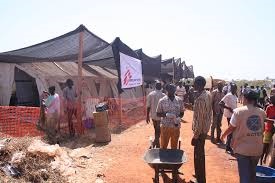Congresswoman Summer Lee, a member of the U.S. Congress, has issued an urgent appeal to President Joe Biden’s administration to take decisive steps toward opening humanitarian corridors in Sudan amid a worsening humanitarian crisis threatening millions of lives.
She also called for enhanced international coordination involving neighboring countries and key regional players, including the United Arab Emirates, to ensure an effective and timely response to the disaster.
In her statement, Congresswoman Lee emphasized that Sudan is facing an unprecedented crisis since the outbreak of conflict between the Sudanese Armed Forces and the Rapid Support Forces in April. The situation has displaced millions of people, caused infrastructure collapse, and worsened food and medical aid shortages.
She stated: “The United States and the international community must shoulder a shared responsibility to alleviate the suffering of the Sudanese people by securing safe humanitarian corridors and ensuring aid reaches those in need.”
The Congresswoman also highlighted that the solution requires more than American efforts and stressed the importance of effective regional and international coordination. She praised the role of neighboring countries such as Egypt, Chad, and South Sudan, and urged influential regional players like the UAE to take a central role in addressing the crisis.
This comes amid increasing difficulties for humanitarian aid operations in Sudan, including targeted attacks on relief workers. The most recent tragedy saw three World Food Program staff members killed in an airstrike on the organization’s headquarters in Khartoum, which many Sudanese political forces have condemned. Responsibility for the attack has been attributed to the Sudanese army due to air raids targeting the UN agency’s premises.
According to the latest IPC (Integrated Food Security Phase Classification) report on Sudan, famine is already spreading across five areas in Sudan, with an additional five areas expected to face famine by May 2025. The Sudanese government has dismissed the report, claiming it lacks scientific rigor and is based on speculative findings, as stated in a release by the Sudanese Ministry of Foreign Affairs.

